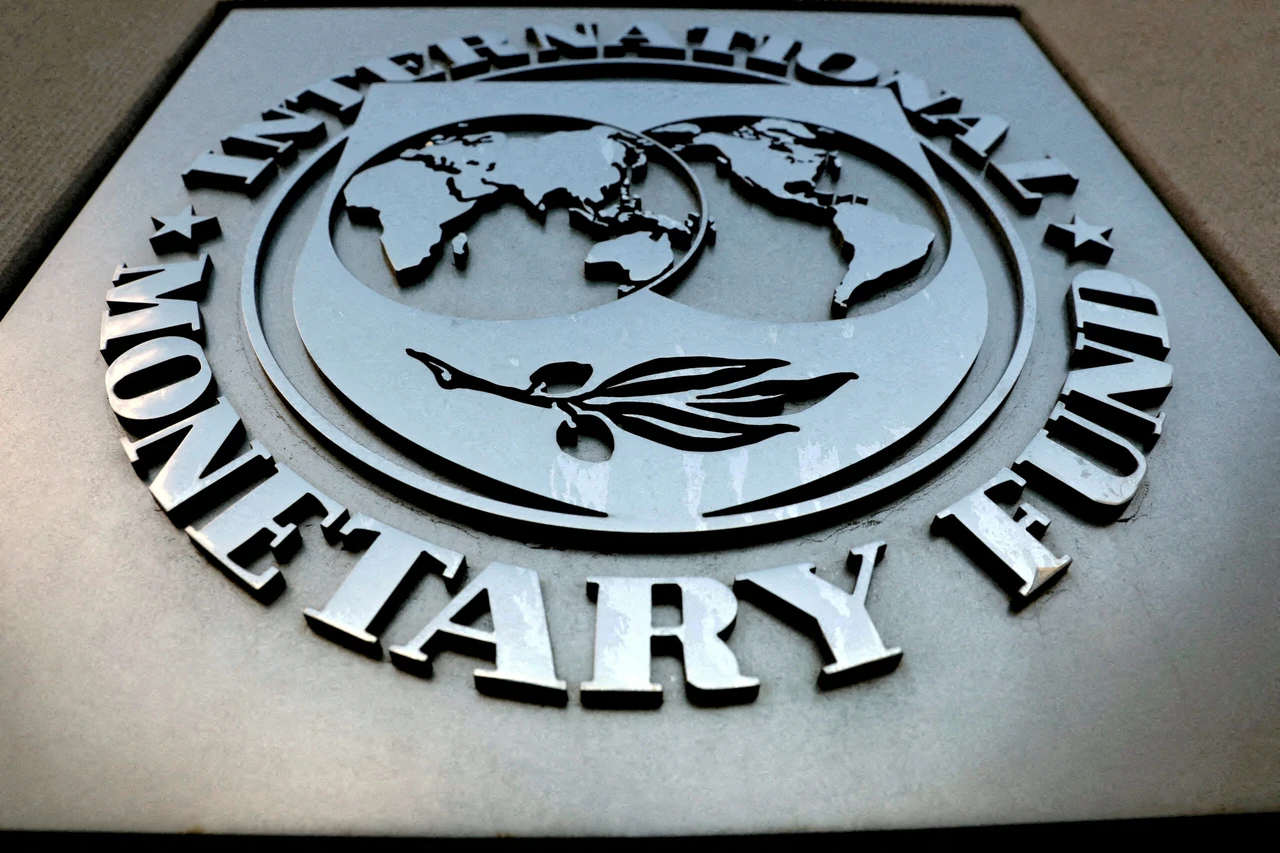Türkiye’s effective policy changes recognized in IMF’s latest assessment
 The International Monetary Fund (IMF) logo is seen outside the headquarters building in Washington, U.S., September 4, 2018. (Reuters Photo)
The International Monetary Fund (IMF) logo is seen outside the headquarters building in Washington, U.S., September 4, 2018. (Reuters Photo)
The International Monetary Fund (IMF) has published its Article IV Consultation report on Türkiye. The IMF team, led by James Walsh, visited Türkiye from May 29 to June 11, 2024, to conduct the fourth article consultations.
The report highlights that Türkiye’s transformation in economic policies has tightened the overall policy mix, significantly reducing crisis risks and boosting confidence. It notes that the current account deficit fell to 2.7% of gross domestic product (GDP) in the first quarter, and market sentiment has improved.
Additionally, international reserves increased by $91 billion in April. International credit rating agencies have upgraded Türkiye’s credit rating, and the credit default swap spread has decreased by approximately 440 basis points since mid-2023.
Current account and market sentiment
The report indicates that while headline inflation has begun to decline during the summer, it remains high. The IMF expects GDP growth and inflation to slow this year and next. It predicts that tight monetary and fiscal policies will suppress domestic demand, with growth expected to be around 3.4% in 2024.
Despite a positive base effect, annual inflation is projected to be around 43% by the end of December. Growth is expected to moderate to 2.7% in 2025, with inflation decreasing to around 24%. The report anticipates that a further reduction in inflation will increase confidence and drive growth back to the 3.5%-4% range. International reserves are expected to remain above 100% of the IMF’s reserve adequacy measure.
The IMF also pointed out that while the gradual approach to combating inflation aims to limit the impact on growth, it carries some downside risks. Rising global energy prices, geopolitical tensions from conflicts in the Middle East or Ukraine, and potential reversals in capital flows could threaten inflation control. The report emphasizes that faster stabilization of inflation expectations could mitigate these risks.
IMF fiscal, monetary policy recommendations
The report suggests that a stringent fiscal policy mix could reduce risks and lead to a faster and more sustainable decrease in inflation. It stresses the need for coordinated fiscal, monetary, and income policies. Although tighter policies may incur short-term costs for growth, they are likely to improve the sustainability of inflation reduction and strengthen medium-term growth and financial stability.
To lower inflation, the report advocates for front-loaded fiscal consolidation, quick rationalization of tax expenditures, and broadening of the tax base. It also notes that stringent financial conditions will be necessary until inflation clearly declines and expectations align with the Central Bank of Türkiye’s target range. Should inflation not progress consistently towards the 2025 target range, additional tightening may be required.
Addressing the persistence of high inflation and setting prices, wages, and rents based on future inflation expectations is crucial for resetting expectations and maintaining competitiveness. The report also calls for further reforms to ensure financial stability and commends Türkiye’s removal from the gray list. Strengthening policy frameworks, addressing barriers for SMEs, improving labor market efficiency, and accelerating the green transition are noted as measures that could enhance medium-term growth.



